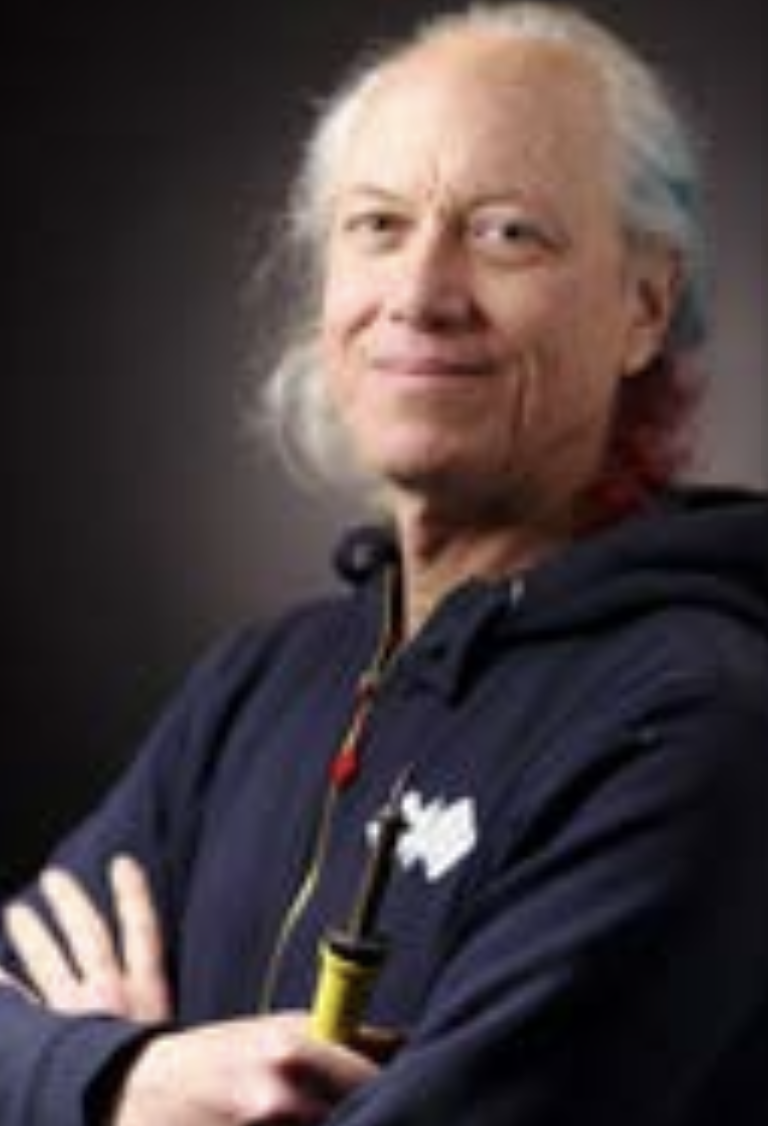Mitch Altman is a hacker from San Francisco and a pro minent figure in the hacker and maker movement. In 2004 he became famous on the internet for creating a key chain that turns TVs off in public places called tvbgone. At the Chaos Computer Congress in 2006, he started getting interested in the idea of hackerspaces, shortly after he was one of the founding members of one of the first US hackerspaces in San Francisco called Noisebridge. He also travels around the world giving talks, workshops, and mentoring people.
What would you say is the essence of a hackerspace?
Mitch Altman: Community. Absolutely, it’s community. It’s
all really just an excuse to bring people together to support each other in living, learning, and growing. It’s a bunch of geeks of all sorts, not just tech but art and craft and design and science and whatever. It’s a community that encourages people to explore and find meaningful things, that you’re excited about, that you’re passionate about, that you might love. People often find projects that they are excited about, that are meaningful and if that’s true for that one person it might be true for others in the community. And then there’s
a project for everyone to work on and if it’s the communi
ty at large, maybe that’s a startup worth starting, unlike most of the startups. So because of stuff like that, it’s been good for economic development in local areas, which is why
it started growing outside of or above the radar. It became pretty much mainstream, together with Make: magazine. They’re pushing the phrase “makerspace” instead of hackerspace because hacker has all these different scarier definitions or Fab Lab as a big nonprofit coming from MIT. All this put together: people working together and playing together and creating community together and showing possibilities to the world, it spreads! And a lot of amazingly positive things have come out of it, including helping edu cation and economic development, and personal growth.
So you would say there isn’t a difference between
hackerspaces and makerspaces?
Well now, there is unfortunately, but there didn’t used to be.
It used to be exactly the same, except Make: magazine was
trying to brand everything with “make”. But whatever peo
ple wanted to call, it didn’t matter, if there was a support
How do you see the role and potential of these spaces within education or for education? It’s supercritical. So hackerspaces, they’re the best education environments in the world. Schools could be this way, but unfortunately almost always aren’t. Of course, we want edu cated individuals for having a worthwhile soci ety. How can we make informed choices on what’s good for our lives, for our communities, for our planet? So we need this more now than ever, but education is run, of course, by bureau cratic systems, and it kind of makes sense that it is. And given that there’s a bureaucracy for edu cation, they need to evaluate how the education is doing. But it has become about the testing, it has become about the assessment rather than about the education that it’s supposed to be eval uating. At hackerspaces there is no assessment whatsoever because who gives a fuck about as sessment when you want to learn what you want


Schreibe einen Kommentar